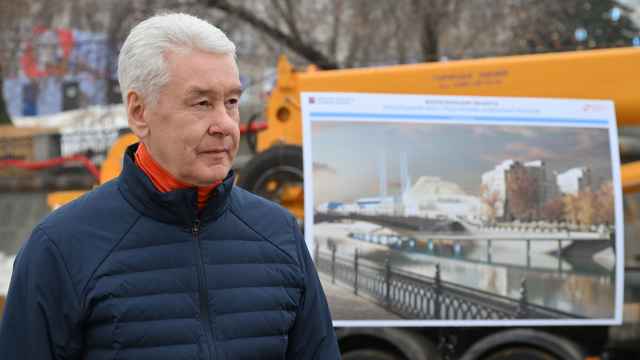In a strange twist Wednesday, the Investigative Committee suddenly that the leading suspect in the bizarre polonium poisoning case of Alexander Litvinenko in London five years ago was also a victim who had been sickened by exposure to the same radioactive material.
The surprise finding runs counter to that of British authorities, who have long accused former KGB bodyguard Andrei Lugovoi of being the assassin who killed Litvinenko and sickened businessman Dmitry Kovtun during a meeting in a London hotel in November 2006.
The announcement also is at odds with Lugovoi's repeated statements in the days and months after Litvinenko's death that several medical checks had cleared him of radiation poisoning.
But the Investigative Committee said it had found otherwise.
"Andrei Lugovoi was poisoned with Polonium-210 while meeting Alexander Litvinenko in London," committee spokesman Vladimir Markin said. "Lugovoi has been acknowledged a victim in the criminal case."
Litvinenko, a former FSB agent-turned-Kremlin critic, was sickened after drinking polonium-laced tea and died four days later.
On his deathbed Litvinenko said Vladimir Putin had ordered his death, and British investigators have long eyed Russia's secret service as having a hand in the Cold War-style killing.
But Russian investigators say they now have lumped Litvinenko's murder into one case together with the attempted murder of Kovtun and Lugovoi, with an unknown perpetrator still at large.
Lugovoi on Wednesday appeared to reverse his earlier insistence that he had not suffered radiation poisoning.
"I am satisfied with this decision because for five years I have been saying that I am a victim, both physically and from a moral point of view," Lugovoi told RIA-Novosti.
Kovtun, who was hospitalized for treatment in 2006, agreed, telling Ekho Moskvy radio: "Of course, that's how it is. We said this back in 2006."
British demands that Lugovoi — who currently serves in the State Duma as a member of the Liberal Democrat Party — be extradited to face trial in London have caused considerable diplomatic strain between the two countries.
Why such a surprising revelation would only be made public now — five years after the fact — is unclear, but some observers suspect a possible political component, as Lugovoi faces re-election on Sunday.
Alexei Mukhin, an analyst with the Center for Political Information, said the findings were likely part of "a thoroughly planned PR campaign" to benefit Lugovoi politically, RIA-Novosti reported.
A Message from The Moscow Times:
Dear readers,
We are facing unprecedented challenges. Russia's Prosecutor General's Office has designated The Moscow Times as an "undesirable" organization, criminalizing our work and putting our staff at risk of prosecution. This follows our earlier unjust labeling as a "foreign agent."
These actions are direct attempts to silence independent journalism in Russia. The authorities claim our work "discredits the decisions of the Russian leadership." We see things differently: we strive to provide accurate, unbiased reporting on Russia.
We, the journalists of The Moscow Times, refuse to be silenced. But to continue our work, we need your help.
Your support, no matter how small, makes a world of difference. If you can, please support us monthly starting from just $2. It's quick to set up, and every contribution makes a significant impact.
By supporting The Moscow Times, you're defending open, independent journalism in the face of repression. Thank you for standing with us.
Remind me later.





